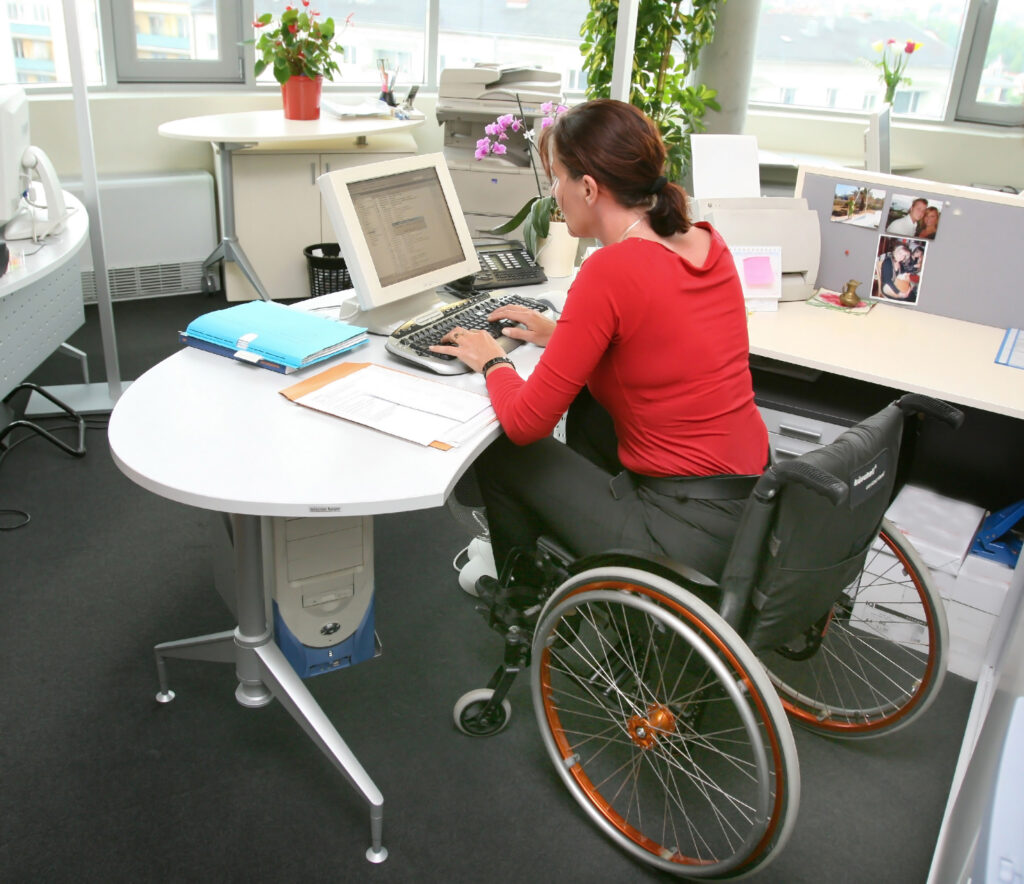Ableism in the Workplace – 6 Ways an Employee May Face Illegal Discrimination
Ableism is common in workplace settings, sometimes unintentionally.
Ableism is defined as discrimination against people with disabilities based on the idea that those with a disability are “superior”, essentially rendering those with disabilities as less than.
According to the PEW Research Center, 42.5 million Americans live with a disability. Disabilities come in various forms.
People often think of visible disabilities, such as paralysis or muscular dystrophy. There are hidden disabilities like dyslexia or diabetes as well.
The Americans with Disabilities Act (ADA) was signed in 1990 to help protect disabled workers from discrimination. In California, the Fair Employment and Housing Act was created to protect employees from various types of discrimination and harassment, including those with disabilities.
Even after 30 years after the ADA was signed, ableism in the workplace still exists.
Think of a situation where Samuel works as a computer programmer. Several of his coworkers are going out for sushi after work one night.
Samuel uses a wheelchair. His other coworkers don’t invite him out for sushi due to what they perceive as a “struggle” of dealing with Samuel’s wheelchair use.
Whether intentional or not, Samuel’s co-worker’s behavior is a sign of ableism. They are not including Samuel in their sushi plans because of his disability.
Ableism in the workplace can happen in many ways, such as:
- Failure to comply with ADA regulations, as well as other disability protection laws.
- Alienating individuals with disabilities from work activities.
- Inaccessible building or office areas, including no elevators and more.
- Failure to provide reasonable accommodations.
- Denying someone has a disability.
- Not letting a disabled worker perform tasks they can due to the belief they can’t.
Ableism is oftentimes unintentional. For example, using phrases like “that’s retarded” or “blind as a bat” are insulting to disabled workers.
One of the more common forms of unintentional ableism is trying to over accommodate for disabled workers. Colleagues may ask disabled workers to help them without any need for such assistance.
Think back to the computer programmer, Samuel. His supervisor tells him he only has to work half-days if it helps him, and he’s often given a lighter workload than other employees.
While Samuel’s supervisor is trying to help, she is unintentionally discriminating against him by putting workers who don’t use wheelchairs at a higher level. Samuel is fully capable of performing his assigned job duties.
If you or a loved one were the victim of ableism in the workplace, you may have a case for a discrimination claim.
As an employee, you deserve the same rights and respect as any other worker. Being discriminated against because of a disability is not only unacceptable, but illegal as well.
If you believe you are being discriminated against because of a disability, you can always contact a supervisor or the HR team at your place of employment.
If the discrimination becomes hostile or harassing, you may benefit from contacting an attorney.
The Los Angeles disability attorneys at C&B Law Group have helped clients recover millions of dollars in damages. Our team believes that no one should be discriminated against because of their disability.
Ableism can be extremely belittling. It might make workers feel less than, or inadequate.
No one deserves to be discriminated against because of their disability. Don’t let intentional ableism hold you back in the workplace.
Our team of LA employment attorneys at C&B Law Group will fight for your rights. We won’t settle until you get the justice you deserve following a discriminatory case in Los Angeles.
We work on a contingency basis, meaning you don’t owe us attorney fees until we successfully settle your case. Additionally, we offer a free consultation regarding your potential case.
Contact us today to learn more.












